Storm Dennis: Heavier rainfall is ‘100% for certain’ linked to climate crisis, experts warn
Minister admits government cannot protect every household from extreme weather
Conrad Duncan @theconradduncan
Heavier rainfall from storms is “100 per cent for certain” linked to climate change and brings an increased risk of flooding to the UK, experts have warned.
The warnings came as George Eustice, the new environment secretary, admitted that the “nature of climate change” means the government cannot protect every household from extreme weather, such as recent storms which have brought flooding to parts of the UK.
“We’ll never be able to protect every single household just because of the nature of climate change and the fact that these weather events are becoming more extreme,” Mr Eustice told Sky News
Research has previously shown that conditions in Storm Desmond, a winter storm in 2015, were made 40 per cent more likely due to climate change.
Over the weekend, Storm Dennis battered the UK with heavy rain and strong winds, just one week after Storm Ciara, with more than a month’s worth of rain falling in 48 hours in some places.
Storm Dennis in pictures
Show all 32
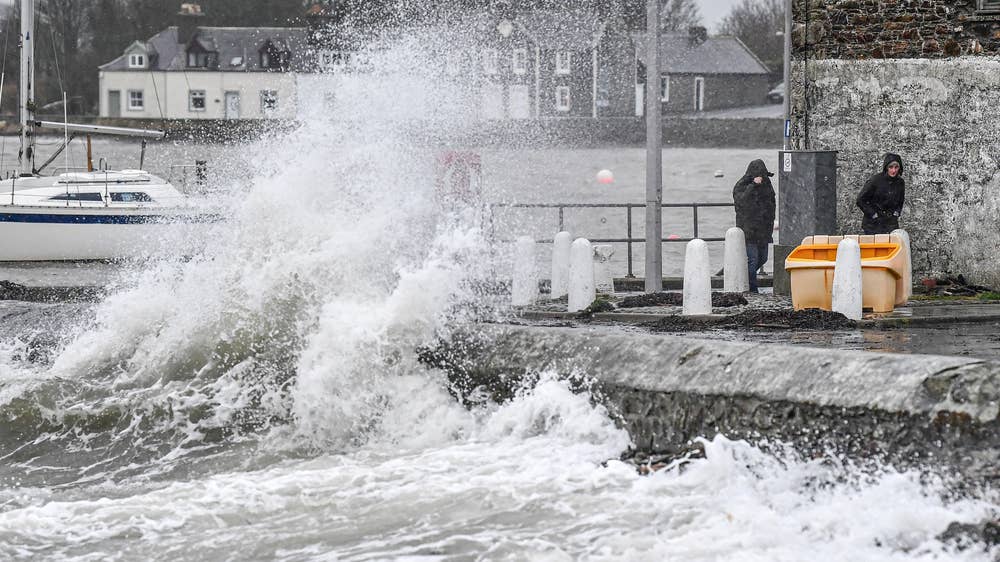
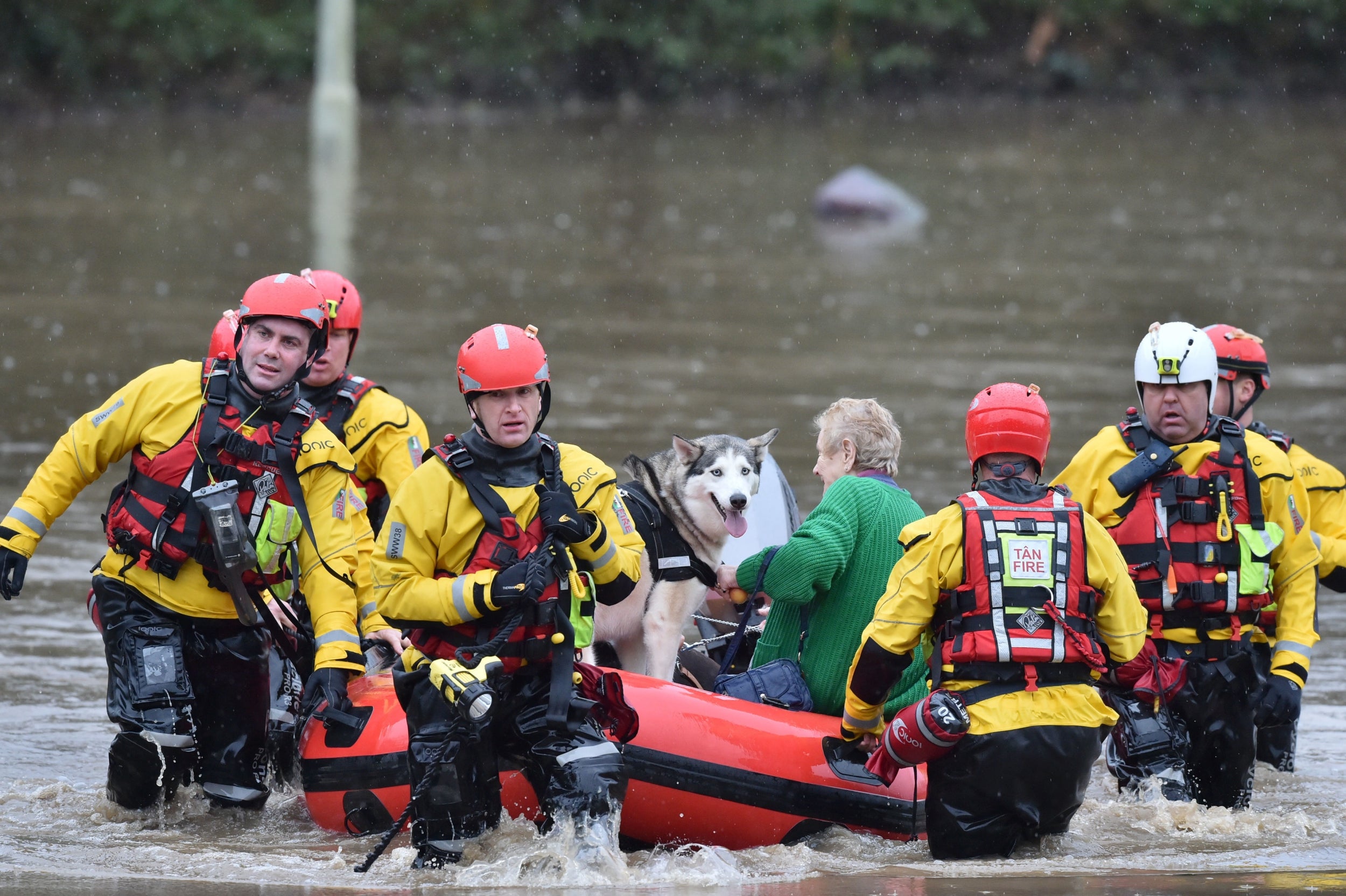
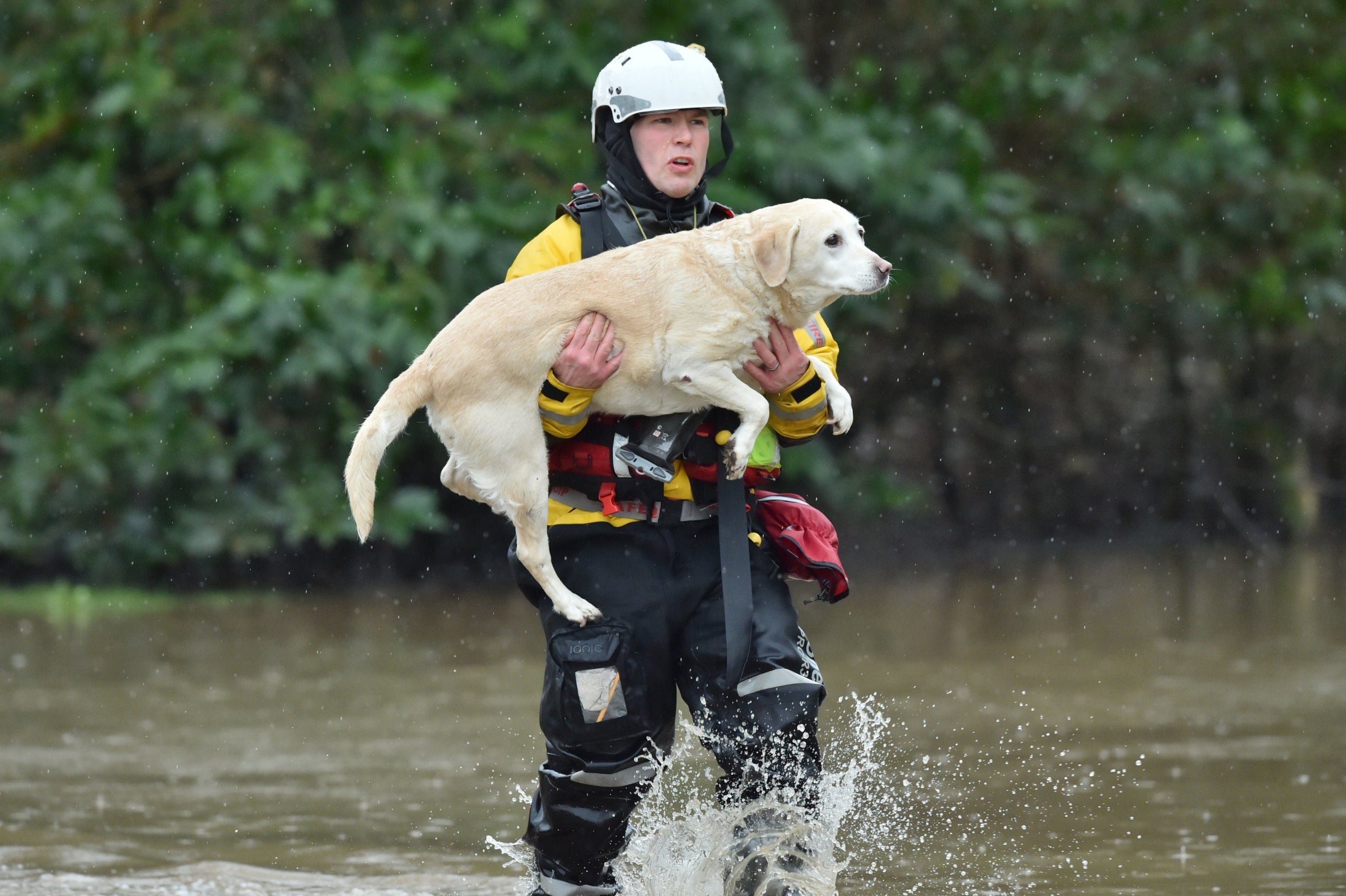
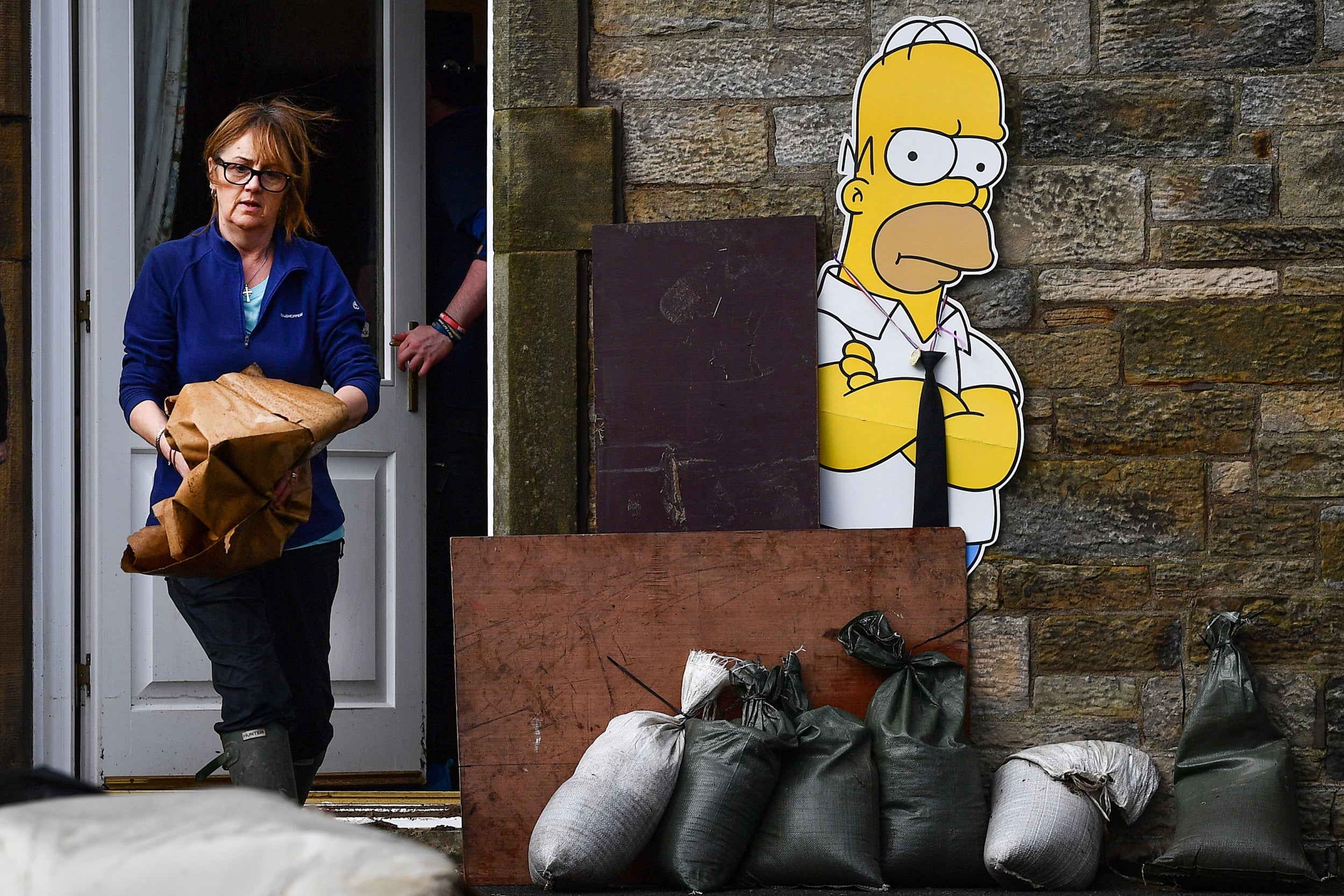
Dr Michael Byrne, a lecturer in climate science at the University of St Andrews, has warned that future storms will bring more rain due to climate change.
“These storms are nothing new, going back 100 years, but, because we are now more than 1C warmer as a whole versus pre-industrial times, every degree means 7 per cent more water in the atmosphere and more rain in these heavy rain events,” Dr Byrne said on Monday.
“When they come, they bring more rain, 100 per cent for certain, because of climate change.”
If temperatures rise by 3C - an increase that the world is currently on track for – storms could bring about 20 per cent more rain than they would have done without climate change.
This, Dr Byrne said, would put a huge strain on flood defences.
Hannah Cloke, a professor of hydrology at the University of Reading, also warned that the UK is “clearly not ready” for more extreme storms.
“These types of events are most likely a taster of what is to come and we should be paying very close attention to that,” Ms Cloke said.
“Clearly, we are not ready for them. We’ve always seen these big floods but we do keep seeing these records being broken, it’s very concerning.”
She added that there are now more people living in areas at risk and the UK needs to be “using the whole toolkit of things to prepare for floods”.
These measures include looking after soil so it can soak up water and does not run off the land to block watercourse, and putting in “leaky dams” made of wood in streams to slow the water’s flow down to the towns.
Ms Cloke also warned against building on flood plains and said that, where necessary, better joined-up planning was needed to protect homes from floods.
Caroline Lucas, the Green Party’s only MP, has called for the government to “get real about investing in appropriate flood defences” following recent storms.
This, Dr Byrne said, would put a huge strain on flood defences.
Hannah Cloke, a professor of hydrology at the University of Reading, also warned that the UK is “clearly not ready” for more extreme storms.
“These types of events are most likely a taster of what is to come and we should be paying very close attention to that,” Ms Cloke said.
“Clearly, we are not ready for them. We’ve always seen these big floods but we do keep seeing these records being broken, it’s very concerning.”
She added that there are now more people living in areas at risk and the UK needs to be “using the whole toolkit of things to prepare for floods”.
These measures include looking after soil so it can soak up water and does not run off the land to block watercourse, and putting in “leaky dams” made of wood in streams to slow the water’s flow down to the towns.
Ms Cloke also warned against building on flood plains and said that, where necessary, better joined-up planning was needed to protect homes from floods.
Caroline Lucas, the Green Party’s only MP, has called for the government to “get real about investing in appropriate flood defences” following recent storms.
Storm Dennis: Boris Johnson accused of going 'missing in action' over failure to visit flood-hit areas
Prime minister remains at country residence in Kent as operations to deal with flooding underway
Boris Johnson has been accused of going “missing in action” after he chose to spend Monday at a government-owned Manor House in Kent rather than visiting flood-hit areas of Wales and the midlands.
The government has activated a scheme to provide emergency financial assistance to affected areas, as hundreds of homes remained flooded and the UK’s transport network struggled to cope with a third day of disruption from Storm Dennis.
But there were no plans announced to call a meeting of the government’s Cobra emergencies committee.
And the Fire Brigades Union (FBU) said that extra cash announced by ministers in response to the flooding would not fill the gap left by cuts totalling £10m from rescue services in affected areas since 2016.
A rescue operation for a woman swept away by floodwater in Worcestershire was called off this morning, amid fears that she has become the fifth fatality of the bad weather that has lashed the UK for the second weekend in a row.
Over the weekend major incidents due to flooding were declared in south Wales, Worcestershire, Herefordshire and Shropshire.
As of 1pm on Monday, there were severe flood warnings, signifying potential danger to life, along the rivers Teme and Wye and 480 flood warnings and alerts in place across England – the highest on record. And streets in York were flooded as the River Ouse burst its banks.
Labour leadership contender Sir Keir Starmer said it was an “appalling” decision for the prime minister to remain at the foreign secretary’s country residence, Chevening, rather than summoning Cobra or travelling to flooded areas to meet those affected, as he did in the weeks before December’s general election.
“The recent flooding is a stark reminder that the government is not doing enough to get to grips with the climate crisis,” said Sir Keir. “Ministers should be taking a lead on this situation, not ducking their responsibilities.
“I would urge the prime minister to reconsider this decision and give communities the support they need to deal with the horrendous flooding.”
Ed Davey, the acting Liberal Democrat leader, said: “Boris Johnson’s response to these floods has been shocking. He seems determined to pretend they’re not even happening.
“Boris Johnson must take this crisis far more seriously and hold a Cobra meeting to coordinate the country’s response. We are facing a climate emergency and regrettably severe weather episodes like this are likely to become more common. The Conservative government has got to raise its game.”
And Luke Pollard, the shadow environment secretary, said: “It is a disgrace that Boris Johnson has refused to visit communities affected by the flooding, and that the government has not convened Cobra. That must be done immediately.
“The prime minister was slow enough to act during the general election, but now he is not campaigning for votes he is completely missing in action.”
A No 10 spokesperson said: “The prime minister is receiving regular updates on this. Defra (the Department for the Environment, Food and Rural Affairs) and the relevant agencies, the police and the fire and rescue services on the ground continue to work on it.”
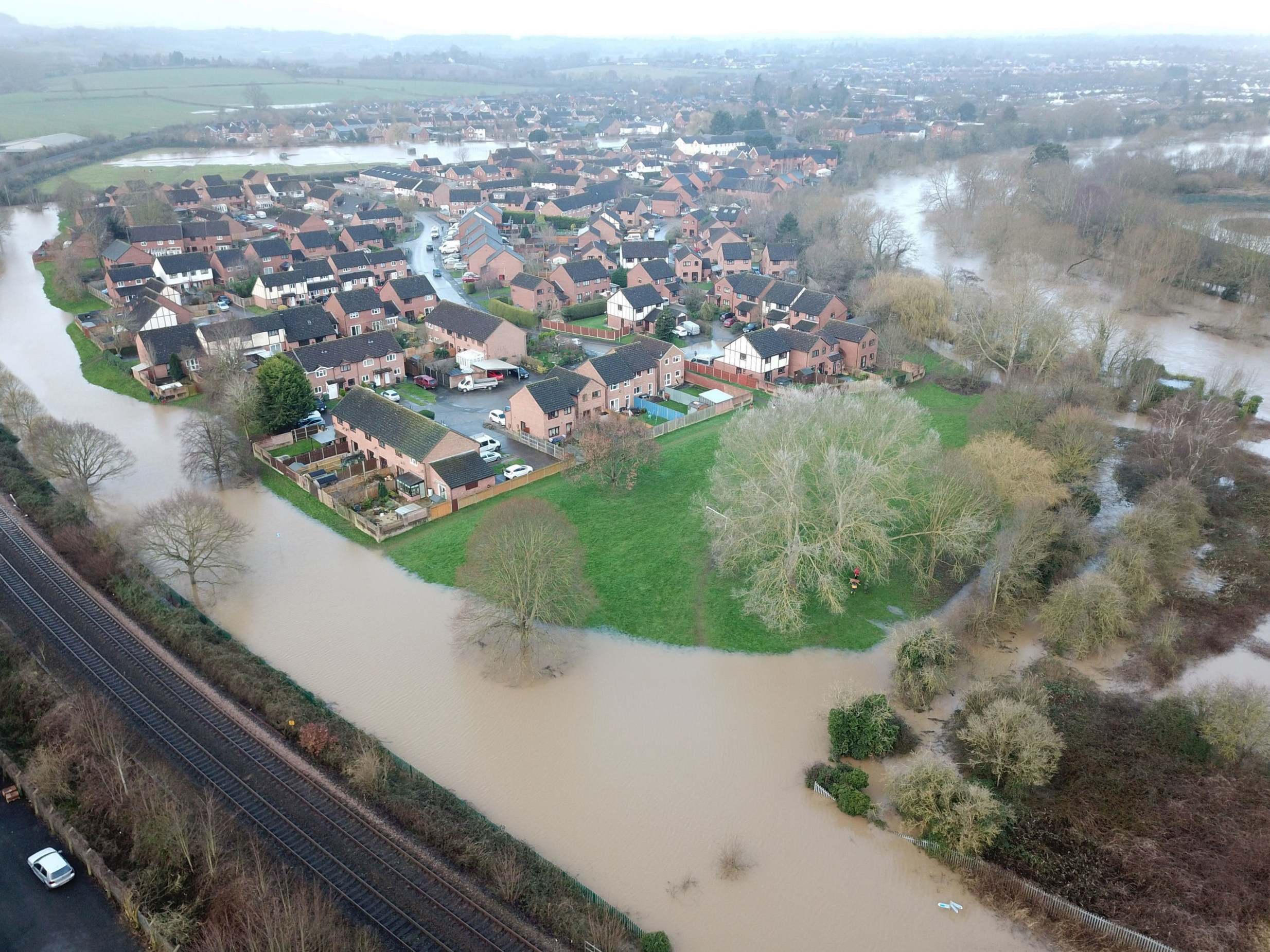
Flooding in Lower Bullingham, Hereford, in the aftermath of Storm Dennis (PA)
The spokesperson told a Westminster media briefing that Defra and the Environment Agency were “working closely with local communities” and have deployed 5km of flood barriers across the country.
The Environment Agency said around 1,000 staff were on the ground across the country operating flood defences and temporary pumps, clearing debris from rivers, inspecting flood defences and supporting affected communities. Flood defences have protected nearly 20,000 properties from the impacts of Storm Dennis, said the Agency.
Toby Willison, the executive director of operations, said: “Every home flooded is a tragedy for that family and our hearts go out to all those who have been flooded during Storm Dennis.
“Our teams will continue to work 24/7, alongside the police, fire and rescue and local authorities, to reduce the risk of flooding and keep communities safe.”
Mr Willison said further bad weather was expected into the middle of the week, bringing a “significant” flood risk for the west midlands.
“With the effects of climate change, we are seeing more frequent periods of extreme weather,” he said. “It is important for people to be aware of their flood risk and stay safe by signing up for flood warnings, making a flood plan and remembering not to drive or walk through flood water – it’s not worth the risk.”
New environment secretary George Eustice admitted the government cannot protect every home.

George Eustice was appointed environment secretary last week (Reuters)
He said: “We have done a lot of work over the last five years to invest in flood defences – some £2.5bn, 600 projects protecting over 200,000 properties, and there is more work underway with £4bn committed in the next five years.”
Local government secretary Robert Jenrick announced the activation of the Bellwin scheme, allowing councils to reclaim the cost of their response to flooding in areas of Nottinghamshire, Leicestershire, Derbyshire, Shropshire, Telford and Wrekin, Worcestershire and Herefordshire.
“By activating our emergency financial assistance scheme, we are making sure that those places hit the hardest will be able to access funding to help them deal with the aftermath of the storm,” said Mr Jenrick.
But Matt Wrack, the FBU’s general secretary, said that government funding for fire and rescue services in affected areas had been cut by £10.1m since 2016/17. This included £2.5m from budgets in Nottinghamshire, £2.3m in Derbyshire, £2.1m in Leicestershire, £1.3m in Shropshire and £1.9m in Hereford and Worcester.
“Robert Jenrick can praise emergency services all he likes, but he has made their job unimaginably harder,” said Mr Wrack.
“The minister and his predecessors have persistently attacked the fire and rescue services who are helping these communities, but he has the audacity to spin Bellwin funding as ‘supporting communities’. This is more government spin and won’t convince any of us.”
No comments:
Post a Comment